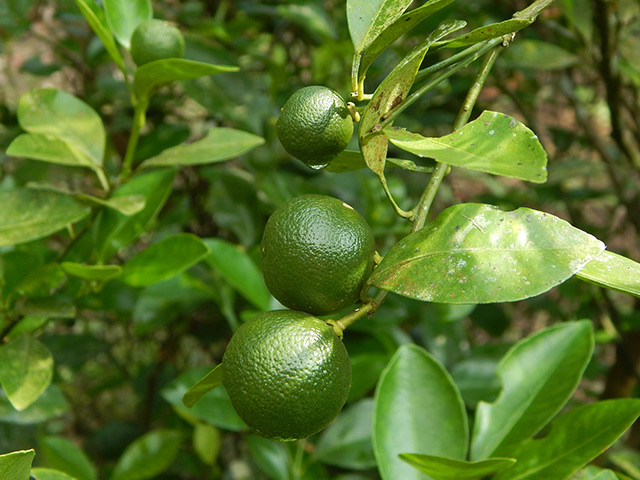Essential oil of calamondin, also known as Philippine lime, found to have anti-microbial properties
09/11/2019 / By Michelle Simmons

Calamondin (Citrus microcarpa), also known as calamansi, is a citrus fruit indigenous to the Philippines. The fruit is widely used as a substitute for lemon and as an herbal remedy. Aside from its fruit, the leaves and flowers of the calamondin plant also offer many health benefits.
In a study published in the Journal of Essential Oil Research, researchers from Vietnam Academy of Science and Technology and Phu Yen University evaluated the bioactivity and physicochemical characteristics of the essential oils obtained from the leaves and flowers of calamondin. They found that the oils have antioxidant, anti-microbial, and anti-fungal properties.
The essential oil obtained from calamondin flower is dominated by monoterpene hydrocarbons including limonene. Meanwhile, the main compounds found in the leaf essential oil are sesquiterpenes and elemol.
The researchers also evaluated the antioxidant activity of both calamondin flower and leaf essential oils using DPPH and ABTS radical scavenging methods. They found that the antioxidant activities of both are higher than that of vitamin C.
The researchers also tested calamondin flower and leaf essential oils against microbial and fungal strains. The results showed that the leaf essential oil exhibited inhibitory effects against six microbial strains, while the flower essential oil inhibited only one fungus strain, which was Aspergillus niger.
Taken together, the results of the study suggested that both calamondin flower and leaf essential oils have antioxidant, antimicrobial, and antifungal properties. (Related: Calamansi fruit from the Philippines found to be a powerful anticancer food.)

Growing your own calamondin tree
The calamondin plant is an evergreen shrub that bears small, juicy lime-like fruits, dark green foliage, and white flowers. Calamondin fruit is extremely sour in taste. You can use it to make juice or use it as a condiment. The plant grows up to 25 feet tall. Like most citrus trees, calamondin grows readily from seed. You can also find calamondin saplings or cuttings at a plant nursery and plant it in pots or your yard. Calamondin grows in a warm tropical and subtropical climate. It thrives outdoors in the U.S. Department of Agriculture plant hardiness zones 9 through 11. Here is a guide on how to grow your own calamondin using calamondin saplings or cuttings:
- Plant the tree in part to full sun in well-drained soil. This citrus plant needs dry soil that does not retain moisture and remains waterlogged. If your soil is heavy clay or sand, spread a 2-inch layer of compost on a 5-foot-square area and rototill thoroughly. Plant it in the middle of the area, so its roots can explore all sides.
- After transplanting, water your tree to keep the soil moist. After the tree is established, water only when the soil is dry at a depth of 1 inch. Watering the plant can be tricky; either too much or too little water can kill it. But in most cases, more citrus trees die of excess water than droughts.
- For every five weeks, feed your plant with a balanced, water-soluble citrus fertilizer but use it half strength in the winter. When spring comes, add a slow-release, general fertilizer in the soil. In spring and fall, add a 4-inch layer of organic compost as mulch over the soil below the tree canopy. This will help lessen weeds and regulate soil temperature.
- Prune the tree rarely, trimming off dead or damaged branches. This will also help prevent branches from touching the ground, which would provide insects direct access to the plant.
Learn more about calamondin and other natural medicines at AlternativeMedicine.news.
Sources include:
Submit a correction >>
Tagged Under:
alternative medicine, Antifungal, Antimicrobial, antioxidants, calamansi, Calamondin, calamondin essential oil, Citrus microcarpa, essential oils, food cures, fruits, grow your medicine, herbal medicine, natural antibiotics, natural cures, natural medicine, research
This article may contain statements that reflect the opinion of the author





















